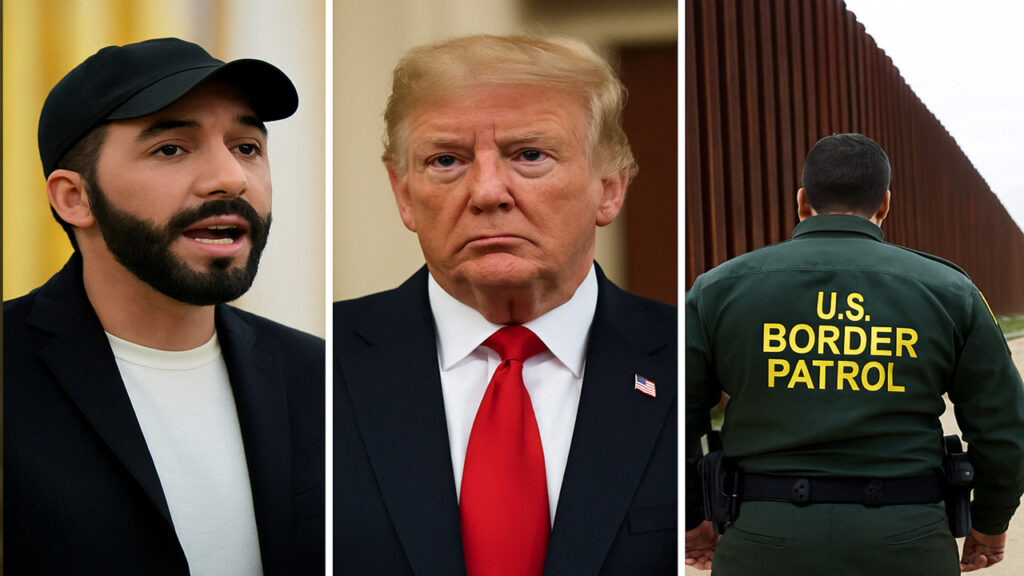El Salvador President Refuses to Return Alleged MS-13 Member to U.S.:
“I’m Not Going to Smuggle a Terrorist”
In a dramatic exchange broadcast from the Oval Office, El Salvador’s President Nayib Bukele rejected any suggestion that he should return an alleged MS-13 gang member, Kilmar Abrego Garcia, to the United States — stating bluntly, “I’m not going to smuggle a terrorist.”
The controversy stems from a U.S. Supreme Court ruling directing that the federal government must facilitate Abrego Garcia’s return. The Salvadoran national, who illegally entered the U.S. around 2011 and had lived in Maryland, was deported last year despite a 2019 immigration court order barring his removal to El Salvador. That court found that while Garcia’s asylum claim was denied, he still had a legitimate fear of persecution by local gangs if returned home.
The Trump administration has since admitted it deported him in violation of that court order — but officials now maintain that the Supreme Court’s directive does not compel them to actively seek his return. In effect, the administration is leaving the final decision up to President Bukele.
Bukele, speaking with clear sarcasm, dismissed the notion entirely: “Am I supposed to smuggle a terrorist into the United States? The question is preposterous. I don’t have the power to return him — and of course I’m not going to do it.”
The matter was also addressed by Department of Homeland Security Assistant Secretary Tricia McLaughlin during an interview with Maria Bartiromo on Fox News. “This illegal immigrant from El Salvador, a known MS-13 member, is exactly where he belongs — behind bars in El Salvador,” said McLaughlin. “The media is trying to paint him as an innocent Maryland father, but this is a gang member connected to rape, murder, and violence. Good for President Bukele for calling it what it is.”
The administration’s position reflects a broader shift in how it interprets immigration rulings under Trump’s renewed leadership. By choosing not to act on the Supreme Court’s order, officials are emphasizing foreign sovereignty, security concerns, and the limits of judicial reach in shaping foreign policy.
Bukele also praised the Trump administration’s record on border control, noting a staggering 99.1% drop in illegal border crossings. “What you’re doing with the border is remarkable,” he said during the same Oval Office exchange.
President Trump echoed that sentiment while slamming the media for failing to cover the numbers: “They hate our country, actually. That’s why you don’t see the truth being reported.”
McLaughlin highlighted the success of current enforcement strategies, stating that Customs and Border Protection (CBP) agents are no longer bogged down with processing masses of asylum seekers and can now focus on apprehending traffickers, cartel members, and child smugglers. “We’re finally taking control of our borders again,” she said.
In conclusion, the administration’s message is clear: Kilmar Abrego Garcia will not be returned, the courts do not dictate foreign enforcement policy, and the priority remains keeping violent offenders off American soil. President Bukele’s firm rejection only reinforces that message — and sends a broader signal that U.S. national security will not be compromised by courtroom technicalities.


